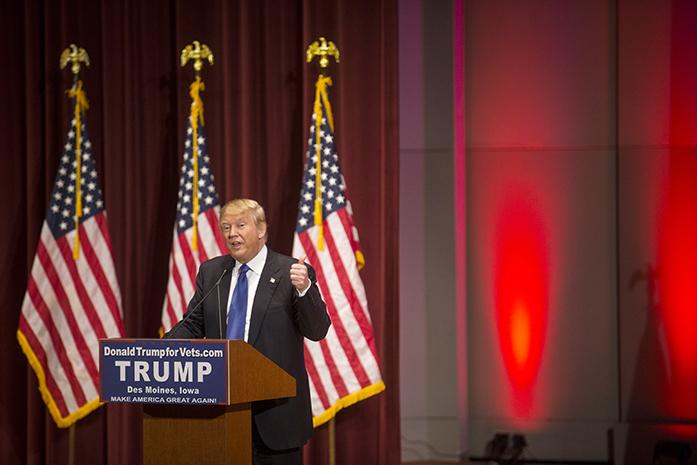Chaos in Cleveland on Monday brought Iowans into the middle of the fight.
By Mitch McAndrew
CLEVELAND — Iowa’s delegation was one of three that on Monday withdrew initial support of a procedural measure that would have forced a roll-call vote on several proposed Republican National Committee rules as a result of threats made to the state’s first-in-the-nation caucuses.
“Supporting a roll call would be seen as divisive, and I think some feared it would reflect badly on the first-in-the-nation,” said Ben Barringer, an Iowa district-level delegate who served on the platform committee last week.
The withdrawals left the movement with insufficient support to force a floor vote on the rules report, and it was subsequently defeated in a voice vote that spawned outrage and walkouts on the delegate floor.
Cecil Stinemetz, an anti-Trump Iowa delegate who was an avid supporter of the roll call, said several Iowa delegates were meeting with Trump and Republican National Committee allies, who, he contended, were “threatening” Iowa delegates with the prospect of losing their caucus status.
Stinemetz walked out of the convention following the roll call’s failure and said he would not return to the floor this week.
“This is a party of lies,” he said. “If we have a vote, would we have won? No, we might have lost, but let us have a stinkin’ vote.”
Contrary to numerous reports, all three delegates said the Iowa delegation did not organize a walkout. Instead, they said, several delegates were absent from the floor at the time of the vote.
Iowa delegate Adam Motzko, who was at the 2012 Republican National Convention in Tampa with Barringer, said the Iowa caucuses are often a big motivator for toeing the party line and that such threats are not new.
“It tends to be a threat,” Motzko said.
Former Virginia attorney general and Stop Trump ally Ken Cuccinelli also accused the RNC of pressuring the Iowa delegation with caucus threats
The proposed rule revisions included a measure that would have given the “Never Trump” camp the opportunity to free bonded delegates and embarrass presumptive GOP nominee Donald Trump at his nominating convention.
The proposed rules included revisions that would appropriate delegates to states by the number of registered voters rather than the state’s population and push for closed primaries in which only registered Republicans would be allowed to vote.
Iowa was one of at least nine states that submitted a majority of signatures supporting the roll call on a resolution. But some members of the Iowa delegation rescinded their support after talk of caucus danger surfaced.
All three delegates said they supported the vote as a means to uphold what Barringer called the Republican Party’s reputation of transparency.
“Many people didn’t have a problem with the rules,” Barringer said. “But we thought it was a good idea to count votes rather than second guess for four years.”
Motzko and Stinemetz, along with delegates from several other states, said the vote’s failure made him nervous for the voice of the grass roots.
“When they take away our voice, it makes us wonder if they really care about what we have to say,” Motzko said. “It says, ‘Do we actually allow delegates to have a vote at our convention?’ ”
Matthew Colter Hurtt, a Virginia delegate who also supported the rule vote, said the national convention is the best place for such matters to be mulled over.
“I’ve been to every RNC meeting in the last four years, and I think this is the best place to discuss these issues and to use this opportunity to advance power flow from the grass roots,” he said.
Marty Neilson, a Sen. Ted Cruz delegate from Colorado, pushed back on any notion of a walkout; she said many of her fellow delegates returned.
“I would call it disappointment that the process was not carried properly,” Neilson said from the floor in Cleveland.
Iowa GOP Chairman Jeff Kaufmann was not immediately available for comment.



